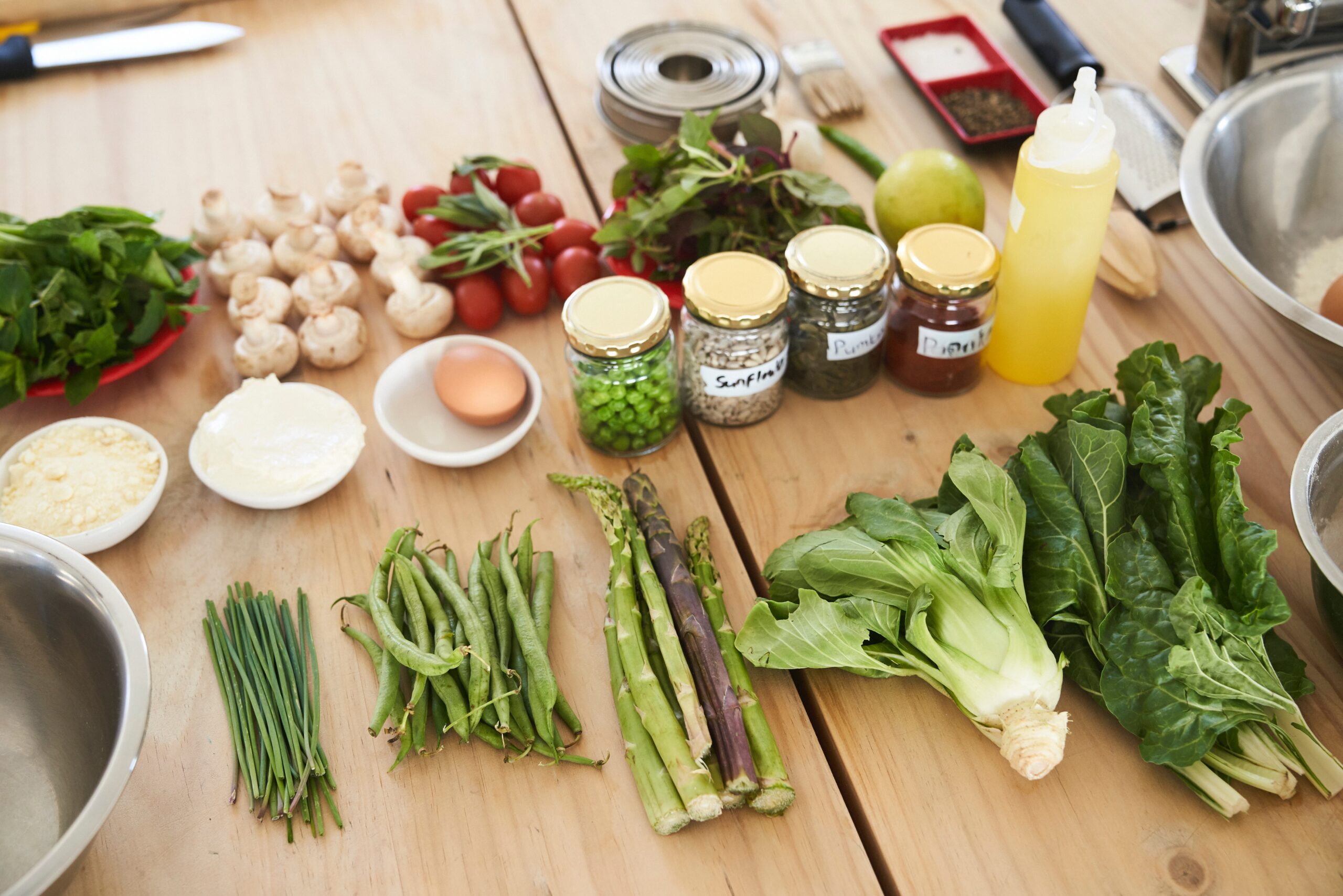8 tips for healthy food habits

8 tips for healthy eating habits
Hey everyone! Dr. Iuliana Corman, ND here. I get asked often “what is the best diet?”, “what diet do you follow?”, “what foods should I or shouldn’t I eat?”, “what is the healthiest thing I can eat” etc. etc. you get the idea. While this is a very in-depth topic and can be different for each individual these are the 8 foundations I tell all of my patients around creating healthy food habits for long term health.
- Eat the rainbow. Different coloured foods provide different micronutrients (vitamins and minerals), so as you’ve probably already figured out, having multiple colours on your plate will give you different nutrients. If you’d like to know more about which micronutrients each colour of the produce has check out this instagram post where I delve into the details. A common follow-up question I get is whether organic really matters. I suggest following the EWG’s dirty dozen and clean 15 lists each year and focus your purchasing around that. You can see the lists here. If you’re going to buy organic the dirty dozen is a great place to start.
- Variety and timing. This ties into the previous tip but variety is important. Eating the same foods every day won’t give you a variety of nutrients and can even cause a food sensitivity to form! While variety in the type of food you eat is important, timing of food consumed should be similar each day. Meaning you eat breakfast around 8am every day, lunch around 12:30pm each day and dinner around 5:30pm each day. The timing shouldn’t change day to day where you eat breakfast at 8am one day and 10am the next. This is important for optimal digestion. Additionally, having a minimum of 4 hours between meals is helpful for the motor migrating complex (MMC) which is responsible for peristalsis in the intestines and thus evacuation of the bowels. If you’re eating every hour your MMC will essentially get confused and “turn off” which can result in constipation. Eating meals spaced apart may not be best for everyone – for example, if you’ve had your gallbladder removed you likely don’t do well with infrequent large meals and feel best when you eat small meals often.
- Focus on LOCAL and IN SEASON. This provides you with the best bang for your buck when it comes to nutrients and freshness. Eating this way will provide you with the most FRESH food possible. This is also best for the environment and supports local businesses #supportlocalKW – and we all know how important it is to support local economy during this strange time!
- Mindful eating – eat with your eyes and nose first then with your mouth. Digestion doesn’t begin in the stomach. It actually begins when we see and smell food that looks appealing to us. This stimulus causes our saliva and digestive juices to get flowing for optimal breakdown of food when it does hit our stomachs. Take the time to plate your food, sit down at the table, get rid of all distractions (ahem, phones/computers), and even set your utensils down between bites. Intentionally look at, smell, and taste every bite of food. Chew your food! Do you suffer from smelly farts? The problem could be as simple as you need to chew your food more! Mindful eating ties into the next point…
- Eat until you’re no longer hungry. Then stop eating. In our house we have a rule, if you finish what is on your plate and want more, wait for 10 minutes and see if you still feel like you’re hungry. Almost every time we do this, we don’t go back for seconds. This gives your brain time to catch up and let your body know that you are in fact satiated and don’t need more. If you follow tip 4 and mindfully eat your brain will already be caught up and you’ll notice when you’re no longer hungry. This prevents the accidental “ughh I’m so full I shouldn’t have had those last few bites”. A bonus to not eating all of the dinner you’ve made is you have a healthy lunch for the next day, and will help avoid bloating, indigestion, flatulence, and belching.
- Save beverages for after eating. Drinking beverages right before eating or while you’re eating waters down your digestive juices making it harder to digest the foods you eat. This can lead to bloating, indigestion, constipation, undigested food in your stool, gas, and stomach discomfort. Save your beverage for when you’re done your meal!
- Eat both raw and cooked vegetables and fruits. Cooked vs uncooked veggies and fruit provide different prebiotics and fibre so a combination of the two is great. Generally, it is best to focus on warm, cooked foods in the winter by steaming, lightly sauteeing, baking, or stewing your veggies. In the summer raw veggies and fruits serve our bodies more than during the winter.
- Plate anatomy. Focus on nutritious foods over counting calories! A good way to do this is to look at your plate and apply the following formula – 1/2 plate of above ground veggies, 1/4 plate protein (legumes, fish, poultry, meat), 1/4 plate complex carbohydrate (below ground veggies – sweet potatoes, squash, quinoa, whole grain/ancient/sprouted grain bread), 2 tbsp healthy fat (avocado, nuts/seeds, extra virgin olive oil, fish oil)
There you have the 8 tips for a strong foundation to healthy eating habits! If you’d like to learn more about what foods are best for you and your health goals you can book a free 15 minute consultation with me here.
Warmly,
Dr. Iuliana Corman, ND
